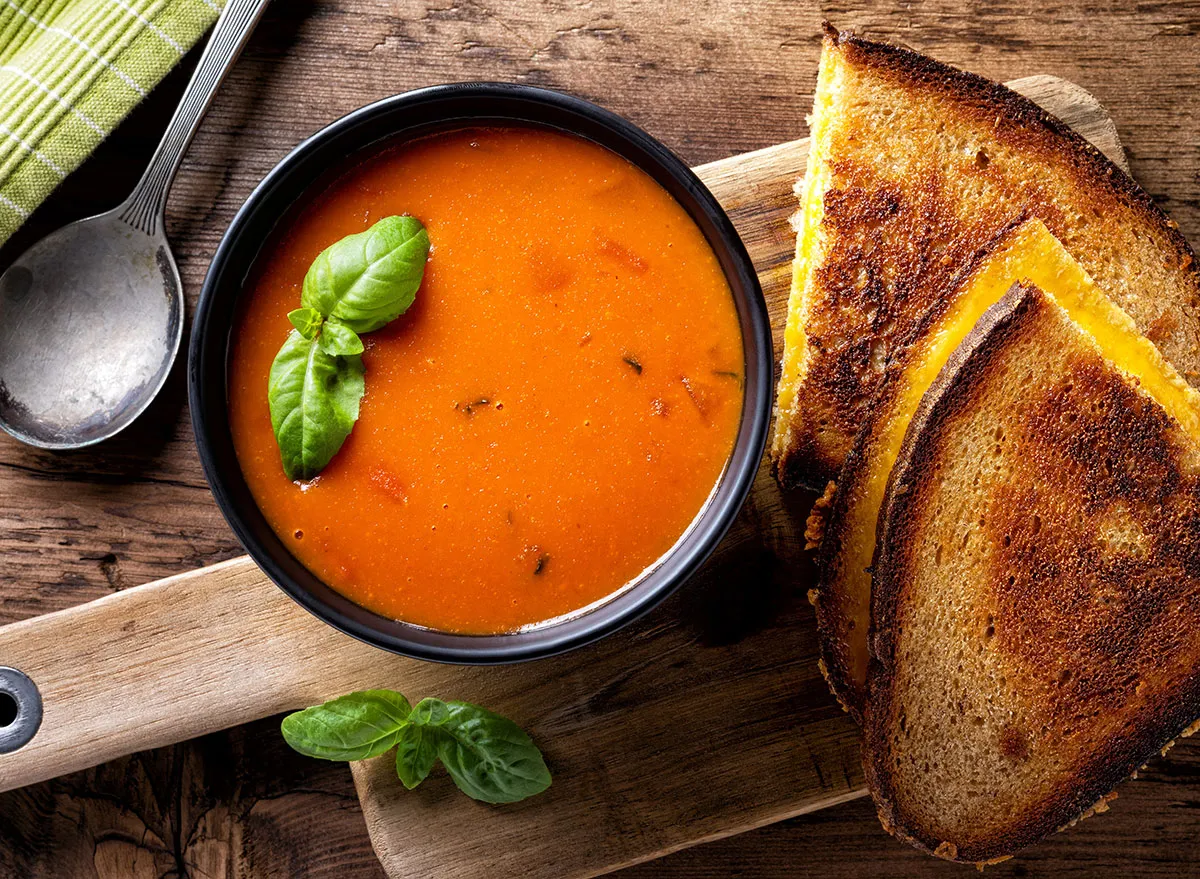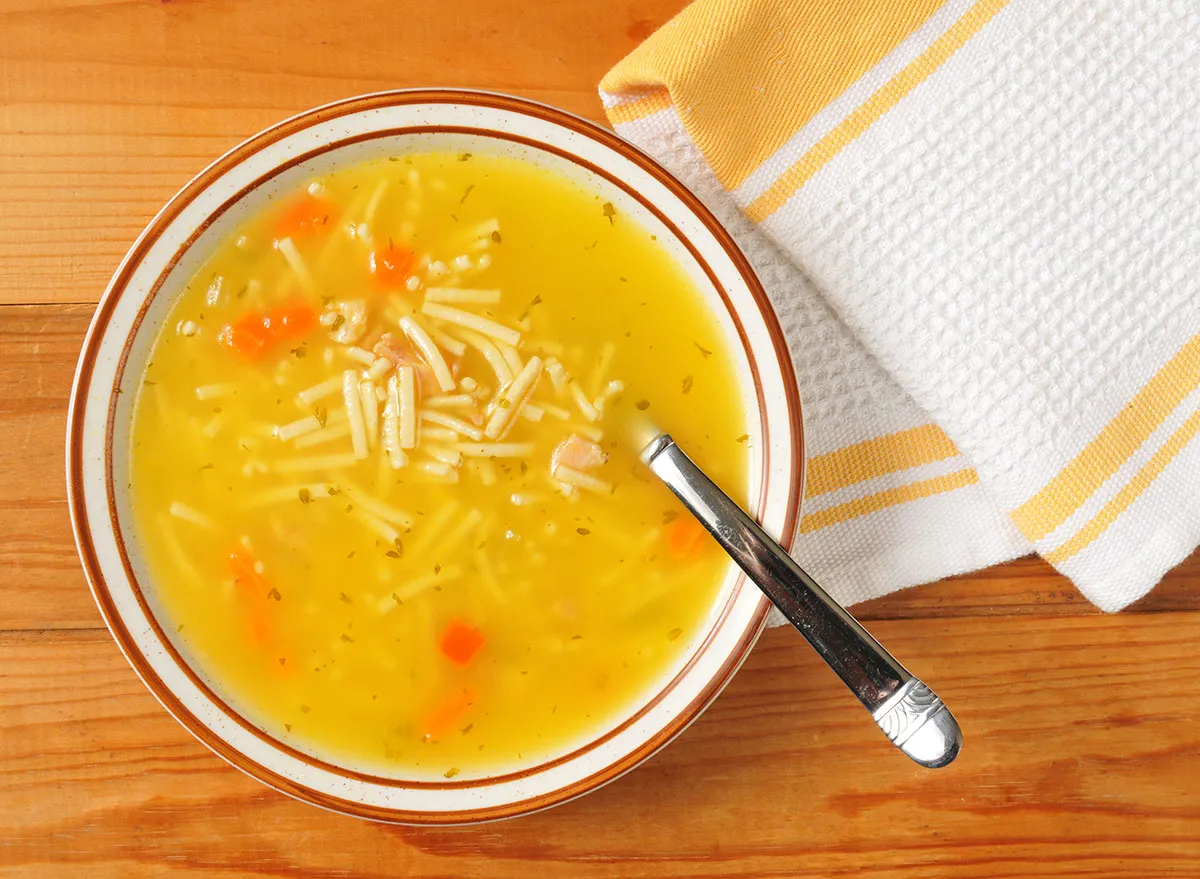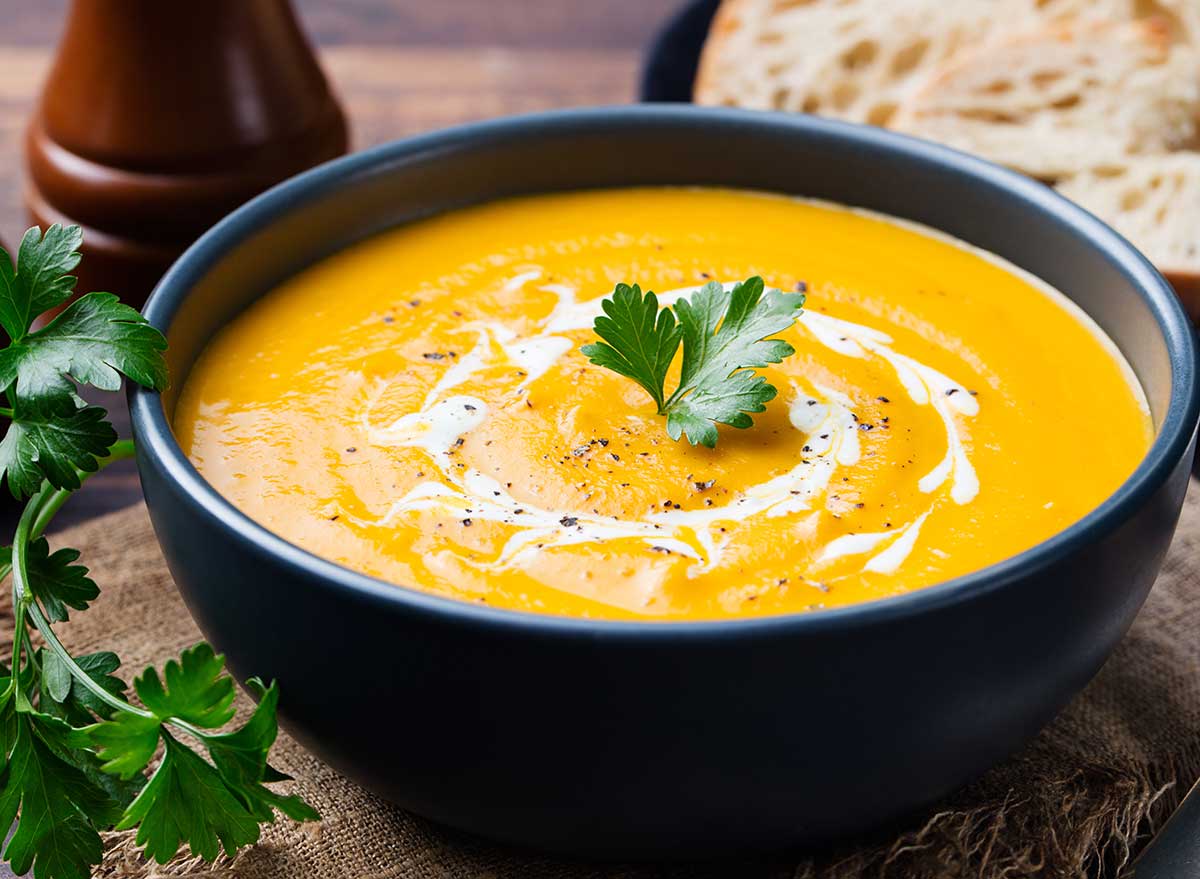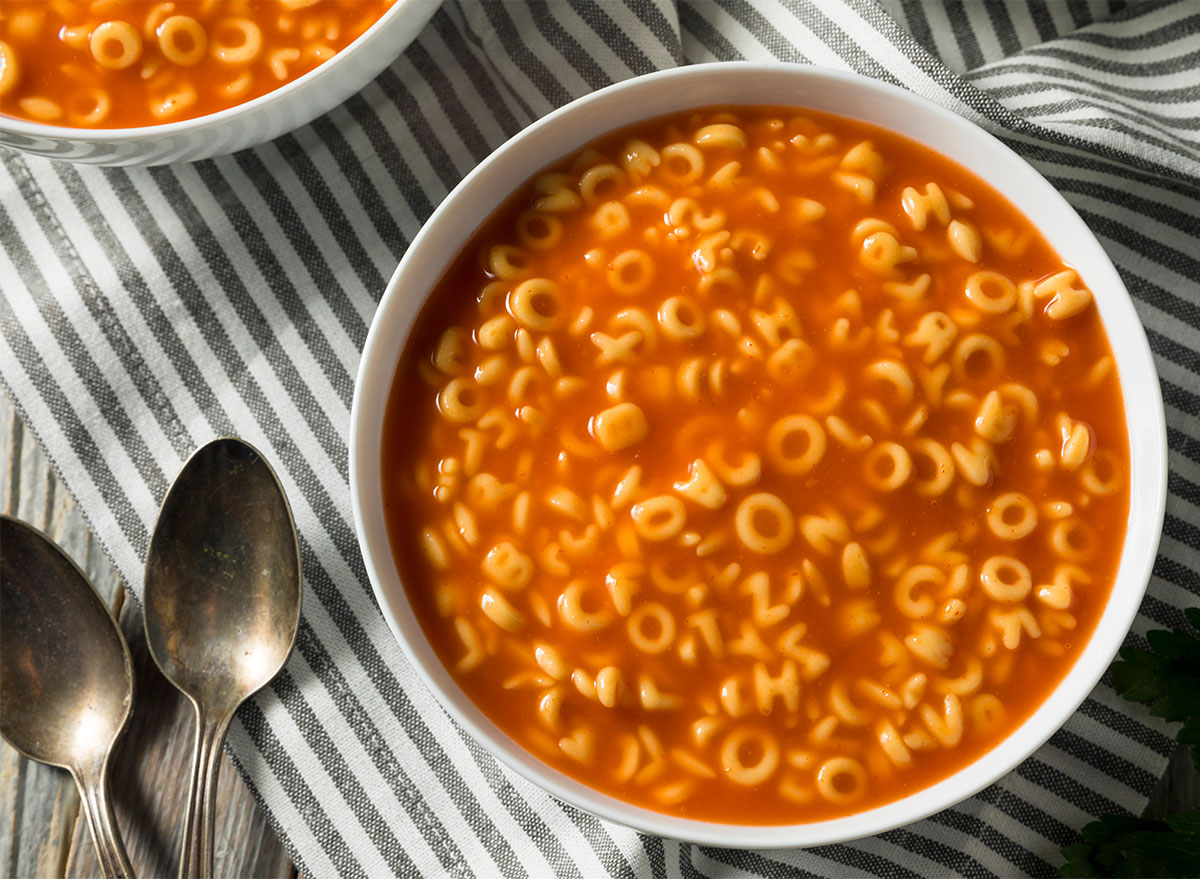Is Chicken Soup a Good Diet Food
There may be nothing more satisfying in this world than a hot bowl of soup. Especially on a frigid winter day, there really is no better way to warm up. Whether it's a thick and creamy bisque or a broth-based chicken noodle, soup can always provide some cozy comfort for the winter blues. But what happens if this becomes your meal of choice quite often and you end up choosing to eat soup every day?
So, for all the soup-lovers out there, we wanted to find out just how healthy, or unhealthy, this warming food can be. We talked with a few dietitians in order to get clear on what happens when you consume soup on a regular basis and find yourself choosing to eat soup every day. And if you're really looking to step up your healthy cooking game, here are 100 Easiest Recipes You Can Make.

If you've ever been curious about why people often eat a soup or salad before a main meal, you're not alone. Depending on the type of soup you're eating, having a bowl or cup before your main course could help you feel more satisfied.
According to Laura Burak MS, RD, CDN, foods with a higher water content can fill you up faster. "Beginning a meal with a soup or salad, both high water volume, low-calorie foods, will fill you up and prevent overeating at meals," she says.
This could mean that if you're someone who enjoys a nice side of soup with your dinner, you may find yourself consuming fewer calories altogether, while still feeling fully satisfied.

With that being said, it's important to note that sometimes, eating certain types of soup as a main course can actually leave you feeling hungrier later. This has everything to do with what ingredients you choose and how many nutrients you're consuming in the meal.
Lauren Hoover, RD believes that eating soup with a variety of balanced nutrients is the key to feeling full and satisfied.
"Some soups aren't very filling if they are missing a main macronutrient (e.g. protein, complex carb, etc.)," she says. "So, [as a] result, having soup for a meal can lead to under-fueling and excessive snacking later on."
Burak also suggests packing your soups full of nutrient-dense foods in order to avoid feeling hungry and overeating.
"Stick with lower sodium broth-based soups that contain nutritious ingredients like veggies, herbs, spices, and high fiber grains, beans, split peas, and lentils," Burak says.

The great news is that if you are intentional about what you put in your soup, you can ensure that you're getting tons of nutrients for fewer calories than most other meals. Studies have shown that soup is actually a contributing factor in losing weight, maintaining weight goals, and lowering the risk of obesity.
Toby Amidor, MS, RD, CDN, FAND award-winning nutrition expert, and Wall Street Journal best-selling cookbook author, believes soup has the potential to be a great source of nutrition.
"If it is a broth-based soup that has lots of vegetables and beans, it's a fabulous way to take in fiber, antioxidant vitamins A and C, and get potassium," she says.
Burak agrees.
"Broth-based soups are a great bang for your nutritional buck," she says. When we skip the creamy soups and stick with a broth that contains foods like veggies, beans, or lentils, "we fill our tank with tons of nutrients and fiber, but without a lot of calories."
And Hoover adds that even the way we prepare soup can help us get our nutrients with fewer calories throughout the week.
"Soups are easy to prepare, especially if using a slow cooker or pressure cooker, and can be made in large batches," says Hoover. "Prepping a big, nutrient-rich soup on the weekends is a great way to ensure you've got a healthy, nutrient-rich lunch for the week."
Looking for more? Check out the easy way to make healthier comfort foods.

There's nothing quite like a bowl of oh-so cheesy broccoli cheddar soup or a creamy clam chowder. Unfortunately, this type of soup can pack a punch when it comes to calories and saturated fat. Our dietitians all agreed that when choosing your soup, it's important to know that any cream-based soup is going to be much higher in fat content.
Burak suggests consuming broth-based soups instead of cream-based if you're wanting to lower your fat consumption.
"Soups made with heavy cream instead of broth can be calorie bombs, and they tend to contain a high amount of saturated fat (not the heart-healthy kind)," she says.
Amidor agrees that the butter and other high-fat ingredients in cream-based soups can lead to an increase in the consumption of saturated fat. She also reminds us that this increase in saturated fat consumption "has been shown to increase your risk of cardiovascular disease—especially if you're eating it often." So you'll want to make sure you're not choosing to eat soup every day that happens to be cream-based!

Along with a high saturated fat content, soup can come with an overload of sodium, as well. The American Heart Association recommends the average person consume no more than 2,300 milligrams of sodium per day, but an ordinary can of Campbell's Chicken Noodle Soup already has 890 milligrams of sodium per serving.
"Although soups can be a healthy choice, they tend to contain high levels of sodium, especially when you buy them from a restaurant instead of making them yourself," Burak explains. In order to combat these higher levels, she suggests "making homemade batches of easy soups so you can control the sodium." And if you're craving some restaurant-made soup for the evening, "just flush it down with lots of water, especially if you're salt-sensitive," Burak says.
Whether you're craving the creaminess of a bisque or chowder, or reaching for the broth-based chicken noodle, our dietitians all agree that making soup at home instead of ordering it at a restaurant or going for the canned version is always the better option for your health.
Hoover suggests choosing "a lean protein source, a complex carbohydrate, veggies, and a broth base" for the perfect at-home healthy soup. And Amidor adds that if you are going to go for the creamier soup base, try using some "starchy vegetables such as Yukon Gold potato or butternut squash." When aiming for the perfect healthy, home-cooked soup, "don't forget to garnish your soup with a few tablespoons of chopped nuts, pumpkin seeds, salsa, or Greek yogurt," says Amidor.
Is Chicken Soup a Good Diet Food
Source: https://www.eatthis.com/news-what-happens-body-eat-soup-every-day/
0 Response to "Is Chicken Soup a Good Diet Food"
Post a Comment